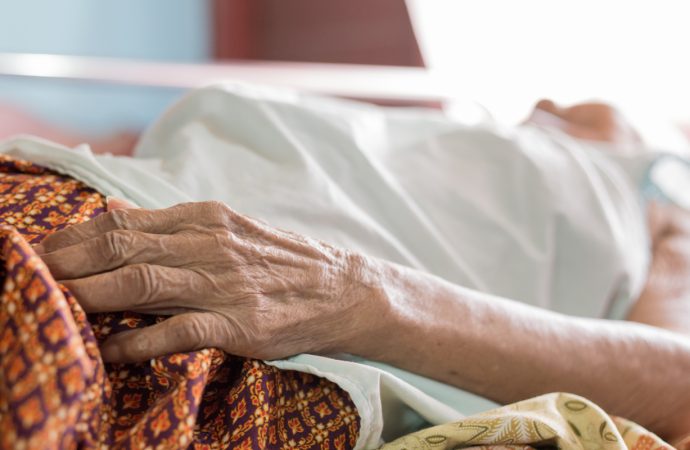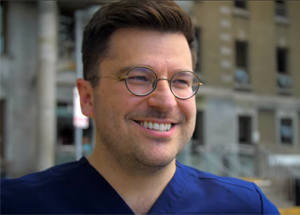Palliative care (PC) aims to maximize the quality of life, relieve suffering and support families in the context of life-limiting conditions. This approach emphasizes interprofessional collaboration to provide a wide range of services including pain and symptom management, caregiver education, psychological, social, spiritual and emotional support (1). PC providers must acknowledge the challenging experiences of the patient, including potential fear and anxiety about death. It is also paramount that PC providers respect their patients’ needs and wishes in the end-of-life period. Recent reports suggest that “while 75% of Canadians would prefer to die at home, only about 15% have access to palliative home care services” (2). Primary care providers play an important role in raising awareness of and improving access to palliative care through advanced care planning.
The Importance of Family Physicians
Given their longitudinal therapeutic relationship with patients, primary care physicians share responsibility in talking about end-of-life care at the early stages of a life-threatening illness. Though palliative care has been demonstrated to improve quality of life throughout the disease trajectory, conversation about—and thus preparation for—end-of-life care is not often undertaken. Specifically, 60-90% of patients with terminal disease report having never discussed this type of care with their physician (3). Family physicians play a central role in clarifying patient values and preferences regarding palliative care as well as in overcoming barriers to the initiation of meaningful discussions. Not only does advanced care planning help patients cope with distress but it also decreases the total number of hospitalizations and aggressive medical interventions in the end-of-life context. Through continuity of care, family physicians can recognize when their patient’s chronic illnesses have reached a critical level and can start integrating a palliative care approach early on in the disease course. Since family doctors have likely known their patients for a long time, longer than any other physician, there is a relationship of trust which promotes palliative care decisions and treatment plans. It also facilitates open discussions about fears, anxieties and existential distress (4).
Existential Distress in End-of-life Care
As patients approach the end of their lives and go through the palliative care process, they often experience tremendous loss. Not only is there a loss of an imagined future, but there is also a loss of autonomy, personhood, appearance, and ability to engage in meaningful activities. Before the patient passes away, parts of their identity are lost as they approach death, and they must confront this reality. During our interview conducted with Dr. Tradounsky, a family physician and palliative care provider, she explains that this loss forms the basis of existential distress in end-of-life care.
Many patients experience fear of dying and anxiety about what will happen when they have passed away, but this is more characteristic of death anxiety (5). Existential distress differs from death anxiety. It is not a sense of fear, but rather a sense of loss (6). Though patients may simultaneously experience death anxiety and existential suffering, treatment for each differs. Dr. Tradounsky highlights that patients affected by existential suffering feel like their life has lost all meaning. This psychological experience can be painful and debilitating. According to Dr. Tradounsky, the role of the healthcare providers in upholding a patient’s dignity and personhood even as the patient loses their autonomy cannot be underestimated. Continuing to treat palliative care patients with respect, dignity and kindness is of utmost importance in helping ease the pain of existential suffering. It is also the role of the healthcare team to determine a treatment plan that incorporates appropriate management of existential suffering.
Deep personal and psychological anguish as experienced during existential suffering can be the difference between a peaceful or tumultuous end-of-life. Therefore, the treatment of existential suffering is crucial in palliative care. Indeed, if it can be treated, the patient may be able to appreciate their last precious moments of life. However, best practices for treating existential suffering have not been agreed upon, and this is still a new area of research. Current treatments and interventions for existential suffering in palliative care include controlled sedation, group and individual therapy, dignity psychotherapy, spiritual or religious interventions, and more recently, the use of psychedelic drugs (7). Many of these treatment options, particularly controlled sedation and psychedelic drug use, remain controversial.
Psychedelic Drugs in End-of-life Care
Psychedelics, such LSD and psilocybin, are a class of drugs that elicit altered states of consciousness and sensory perception. For many, the topic of psychedelics remains strongly stigmatized due to its associations with the counterculture movement. The history of psychedelics, however, is rich in lessons regarding the potential of these substances. Indigenous peoples, particularly in the Americas, have learned to harness the psychoactive properties of traditional plants to help guide cultural, healing and spiritual practices. Advancements in modern science in the early 20th Century allowed for the isolation and synthesis of numerous compounds with hallucinogenic properties. This period of psychedelic awakening, in which awareness was raised of the therapeutic potential of psychedelics, was short-lived. Indeed, drug use for recreational purposes as well as unregulated research by psychiatrists led to strict legal changes, including the criminalization of many psychedelic substances (8).
Individuals with a terminal illness often experience anxiety, demoralization, and depression for which conventional drug treatments provide inadequate relief. In the end-of-life context, psychedelics can offer the benefit of “humanizing [the dying process] and understanding it as part of the life cycle” rather than simply numbing existential distress (9). That is, under the right circumstances, psychedelics can evoke feelings of compassion, love and openness which promote a greater acceptance of death.
Dr. Tradounsky explains that when using psychedelics such as psilocybin, patients usually experience an acute phase of “intoxication” where their views of the world and themselves are altered. This episode usually happens in the presence of a psychologist who guides patients through their experiences. In fact, it appears that those experiences that happen under the acute effect of the drug carry on to patients’ everyday life thereafter, changing their views of the world, how they’re connected to others and their sense of self within the world. In a certain way, it gives patients a renewed sense of life and addresses their existential suffering. In fact, in a randomized-controlled trial conducted by Niles et al, “using psilocybin has demonstrated reduced depression, anxiety and fear of death in patients with cancer-associated anxiety or depression, with benefits persisting in 60–80% of survivors at 6-month follow-up.” (10)
Conclusion
Active research in the field of psychedelic-assisted psychotherapy in refractory existential suffering is being conducted with promising outcomes; at the moment, larger clinical trials are required to determine how this new therapy could be integrated into palliative care and whether there are major safety concerns (10). Regardless of whether or not psychedelic drugs will come to be widely used in palliative care, the treatment plan must include methods of addressing existential distress, and family physicians play a central role in doing this. Family physicians are often patients’ go-to providers and are better able to assess the patient and family’s needs on emotional, medical, social and psychological levels.
Authors: Myriam Stephan, Martina Erdstein, Justin Ballick, Michael Ferrante, Chelsea Pozzebon, Jenny Wang.
A special thank you to Dr. Tradounski, a family physician and palliative care provider, who helped us gain insight on this topic.
REFERENCES
1 Author unknown. What Is Palliative Care?: Definition of Palliative Care, Get Palliative Care.
2 Canada Health. (July 2019). Framework on Palliative Care in Canada Government of Canada
3 Brighton L., Bristowe K. (July 2016). Communication in Palliative Care: Talking about the End of Life, Before the End of Life BMJ Journals
4 Ramanayake, R., Dilanka G., Premasiri L. (2016). Palliative Care; Role of Family Physicians National Library of Medicine.
5 Simon, D. (2014). Death Anxiety in Palliative Care Palliative Medicine & Care.
6 Niles, H., Fogg C., Kelmendi B., Lazenby M. (December 2021). Palliative Care Provider Attitudes Toward Existential Distress and Treatment with Psychedelic-Assisted Therapies BMC Palliative Care.
7 LeMay, K., Wilson K. (2008). Treatment of Existential Distress in Life Threatening Illness: A Review of Manualized Interventions ScienceDirect.
8 Dublin, R., Christiansen M., Jerome L., Burge B. (2019). The Past and Future of Psychedelic Science: An Introduction to the Issue Journal of Psychoactive drugs.
9 Garcia, A., De Oliveira Maia, L.. (Jan 2022). The Therapeutic Potential of Psychedelic substances in Hospice and Palliative Care Progress in Palliative Care.
10 Niles, H., Fogg C., Kelmendi B., Lazenby M. (December 2021). Palliative Care Provider Attitudes Toward Existential Distress and Treatment with Psychedelic-Assisted Therapies BMC Palliative Care.










